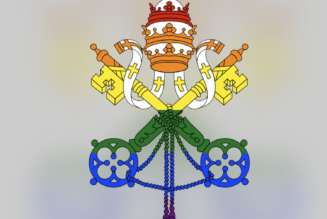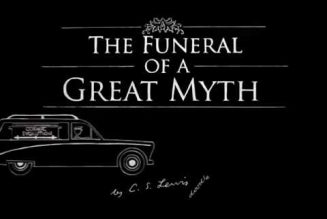
A correspondent writes:
On what grounds may a pet be euthanized?
We have an adopted dog that is highly destructive, more than we are willing to support financially, and more than we can manage with our limited time and attention. We are afraid for our one-year-old child’s safety, as the dog plays rough and has injured both my wife and me. The dog is confined to a kennel most of the day, since we cannot supervise and control him to prevent damage. We do not feel we can provide a good quality of life for this animal.
Day-training and boarding-school are not feasible, since the dog cannot ride in a car. We are not willing to pay for an expensive in-home behaviorist. We don’t have the time or expertise to train him ourselves.
We have tried re-homing the dog for months now. The foster family we got him from will not take him back. The local shelters will not take him as they are all at full capacity. Family, friends, and coworkers will not take him. We posted him on a couple of re-homing websites, with no success. We believe his chances of re-adoption are low due to his behavior and a pre-existing health condition.
We regret our decision to adopt this dog. We do not want to have an otherwise healthy dog put to sleep. But we do not know what else to do. We do not believe we are acting out of frustration alone. We are trying to consider what is best for our family’s wellbeing. Above all, we want to do what is right in the sight of God. If we are about to do something evil, we want to know it. So far, we have not found any clear teaching from the Church.
Can you help us?
I believe that I can.
According to the Catechism of the Catholic Church:
2415 The seventh commandment enjoins respect for the integrity of creation. Animals, like plants and inanimate beings, are by nature destined for the common good of past, present, and future humanity
2417 God entrusted animals to the stewardship of those whom he created in his own image. Hence it is legitimate to use animals for food and clothing. They may be domesticated to help man in his work and leisure.
2418 It is contrary to human dignity to cause animals to suffer or die needlessly. It is likewise unworthy to spend money on them that should as a priority go to the relief of human misery. One can love animals; one should not direct to them the affection due only to persons.
These passages do not directly address your question, but they do contain the principles that provide its solution.
Animals do not have rights the way humans do. Consequently, they are “by nature destined for the . . . good . . . of humanity” (2415).
“God entrusted animals to [our] stewardship. . . . Hence it is legitimate to use them for food” (2417), meaning it is legitimate to terminate their lives when human need requires it.
While “it is contrary to human dignity to cause animals to suffer or die needlessly,” this is not the case when there is a human need requiring their death and it is “unworthy to spend money on them that should as a priority go to” human needs. Consequently, “one should not direct to them the affection due only to persons” (2418).
In your case, the animal is dangerous, it has already injured you and your wife, and you have a vulnerable child that it may injure. You have not been able to re-home it, and you do not have money to reasonably spend on alternative solutions (e.g., an animal behaviorist). At present, the dog is spending most of its time in a kennel for safety reasons, meaning it is not having a good quality of life, either.
In light of the principles and circumstances just described–and the lengths you’ve already gone to to try to find an alternative solution–Catholic moral theology would understand the decision to have the animal put to sleep. It would not be something evil. In light of the circumstances you describe, it sounds like it would be the best solution, even if it is a regrettable one.
For what it’s worth, a similar situation happened in my own family when I was a child. We adopted a dog that had been largely raised without human company, it was quite aggressive, and it attacked and harmed my little sister. My parents made the decision to have the dog put to sleep. This pained me as a child, but as an adult, I understand the decision they made.
Bottom line: We are not required to keep dangerous pets, and if there are no better solutions, they can be treated like other dangerous animals and put to sleep.
I hope this helps, and God bless you!








